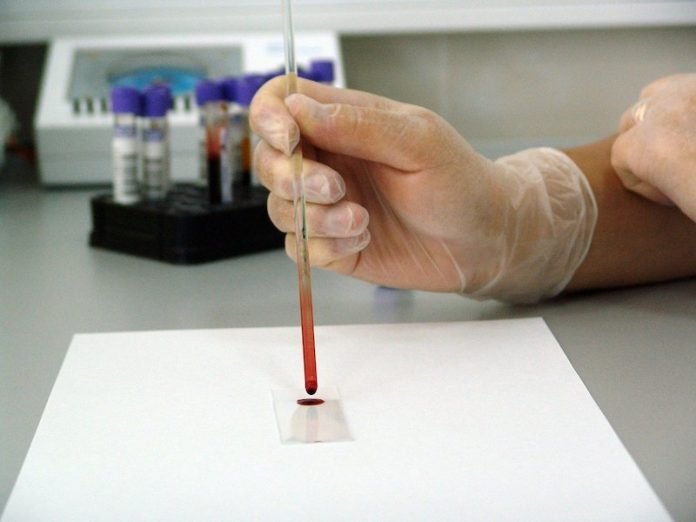
In a new study, researchers found that blood platelet counts at the higher end of normal suggest a high risk of cancer in men aged 60 or over, and should be examined.
The research was conducted by a team at the University of Exeter.
Platelets perform a crucial function in blood, including helping blood to clot, which helps us heal wounds.
However, the researchers have previously found that cancer risk is strongly raised by having an abnormally high blood platelet count (more than 400 x 109/l,) a condition known as thrombocytosis.
Now, they have found that cases of cancer greatly increased in older males with a platelet count on the high end of the normal range (326 to 400 x 109/l), indicating that these patients should be tested for cancer.
In the study, the team reviewed the records of nearly 300,000 patients who had platelet counts on the higher end.
They found that the number of these patients diagnosed with cancer a year later was much higher if the patients had even slightly raised platelet levels.
Of 68,181 male patients with levels of blood platelet on the higher end of normal, 1,869 cases of cancer were diagnosed within one year. Of these, 720 were an advanced stage.
A higher platelet count was most frequently linked to lung and colorectal cancers—both aggressive forms of cancer.
The team says that men aged over 60 whose platelet count is on the higher end of a normal are more likely to have underlying cancer.
Updating guidance for GPs to investigate higher platelet counts could save lives. This is particularly important in a post-COVID era; clues to help GPs identify cancer earlier are crucial to targeting the backlog in cancer investigation and diagnosis
One author of the study is Dr. Sarah Bailey, Senior Research Fellow at the University of Exeter Medical School.
The study is published in the British Journal of General Practice.
Copyright © 2020 Knowridge Science Report. All rights reserved.



